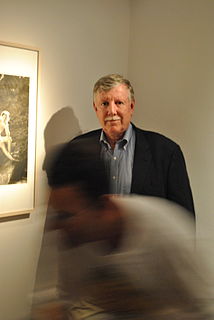A Quote by Brian Aldiss
The feat represents immense achievement for the neotenic ape, species Homo sapiens. But behind this lie twooldattributesoftheapetribalismandinquisitiveness.
Quote Topics
Related Quotes
Zoologists have reckoned there are up to at least 750 species of animal that have been observed exhibiting same-sex behaviour, or gender role transformation (which is very common in a wide range of fauna). There is only one species on earth, however, which has exhibited homophobia or transphobia. And that is the species homo sapiens sapiens. Us. So let's not allow the foolish, ignorant or bigoted ever to use words like "natural."
The humanity and the humility, which are very different than the biological species homo sapiens. Humanity versus homo sapiens - very different things. We are biological creatures, we are animals, no doubt, but when you talk about "humando," you're talking about that particular kind of animals who are aware of their impending extinction, who have the capacity to be sensitive to catastrophe and disaster and calamity and profound crisis.
I contend that the continued racial classification of Homo sapiens represents an outmoded approach to the general problem of differentiation within a species. In other words, I reject a racial classification of humans for the same reasons that I prefer not to divide into subspecies the prodigiously variable West Indian land snails that form the subject of my own research.
It struck me as I listened to those two men that a truer nomination (name) for our species than Homo sapiens might be Homo narrans, the storytelling person. What differentiates us from animals is the fact that we can listen to other people’s dreams, fears, joys, sorrows, desires and defeats–and they in turn can listen to ours.
In the end I came to see that the true prophet of the modern world was Samuel Butler: when he suggested that the machine was an evolutionary development, destined to supersede man as the dominant species and reduce him to greenfly status, the status of machine-minder, homo mechanicus instead of homo sapiens; and to modify his nature accordingly.






































